Ben Wheatley’s film version of J.G. Ballard’s 1975 novel High-Rise is a movie with style to burn — and one guaranteed to polarize audiences. It is unlike anything you are likely to see this year. Imagine if Ken Russell, Terry Gilliam, Stanley Kubrick, Luis Buñuel, Nicolas Roeg, John Boorman and David Cronenberg all got together and made a film (probably with the aid of strong drink) — the result might be something like this. Indeed, High-Rise not only retains its vaguely futuristic 1975 feel, but it’s something of a throwback. It’s hardly coincidental that, early in the film, we’re told that the main character, Laing (Tom Hiddleston), “found it difficult to believe that they were not living in a future that had already taken place.”
The film feels for all the world like a product of that era — the one that is sometimes called “New Hollywood” but was a lot more international than the term implies — which is more or less the same era when the aforementioned collection of filmmakers were at their peak. Considering that the world of dystopian sci-fi seems to have become the exclusive province of YA adaptations with mopey teenagers, this is even more striking. And certainly more cerebral, funny and disturbing.
High-Rise takes place almost entirely in the building of the title, a modernistic 20th-century monstrosity (concrete, glass and sharp, angular lines). It would be the last word in the recognizable, but not quite real, 1975 it inhabits. (Aspects of it are likely to recall the corridors of John Boorman’s 1967 Point Blank and the glass and chrome penthouse of his 1977 Exorcist II: The Heretic.) The building is also a little bit like an immobile, vertical version of the train in Joon-ho Bong’s Snowpiercer (2013), except here your social status and privileges are determined by how high up the building you are. To underscore this, the upper floors are increasingly large — at least on one side, causing the building to look a bit like a gigantic concrete T. Rex. The biggest is, of course, the top floor, belonging to the architect-owner Mr. Royal (Jeremy Irons). It’s large enough to include a formal garden with sufficient room for his wife (Keeley Hawes) to keep a horse (she rides) and a goat (she also likes to dress up like some sort of Bo Peep).
The idea is that this building is an enclosed society — the skyscraper version of a gated community — that has everything you need. It would theoretically be possible to never leave the building, This ultimately functions like Buñuel’s The Exterminating Angel (1962), where a group of people inexplicably can’t leave a house after an upper-class dinner party. Here, as the ideal community starts becoming less than ideal (in part due to the upper floors being given increasingly preferential treatment — if there are shortages, from electricity to groceries, the lower floors are the first to suffer), it never seems to occur to anyone just to leave. In fact, they become increasingly devoted (or addicted) to the building (society) they inhabit. They can’t even find their cars in the parking lot should they decide to leave.
The story is viewed mostly through the eyes of Laing (the embodiment of the passive middle class, a man with boxes he says are full of “sex and paranoia”) — as both observer and participant. Truthfully, there’s less story than there’s a series of events tied to the central situation of this attempted paradise as it descends into dissatisfaction, rebellion, chaos, depravity and extreme decadence. At the same time, we get a pretty good notion of Royal and his skewed notion of reality. He tells investigating police (none of whom seem to have showed up when a tenant fell 39 stories) that there’s nothing here “that can’t be swept under carpet” — despite massive filth, damage and something on fire in the background, not to mention that had to remove his blood-spattered coat to answer the door. And that settles the matter. We also learn a good bit about Wilder (Luke Evans), a TV producer (and failed documentarian) from the lower floors, who heads an utterly disorganized revolt and himself descends into barbarism. His biggest transgression, according to the top floor denizens, is his lack of decorum. (“Now he’s raping people he’s not supposed to. And, to top it off, Mercer here says he actually shat in his attaché case.”)
Ultimately — and despite its connections to other films and filmmakers — High-Rise is a film apart. And that’s a good — even great — thing, though I admit its structure and targets are much clearer on a second viewing. It is definitely not for everyone in its unflinching brutality (the film opens with Laing roasting a dog’s leg before flashing back to how this came to pass). Its bleak, mordant sense of humor will alienate some. But for those who can take it, this is one hell of a movie. Rated R for violence, disturbing images, strong sexual content/graphic nudity, language and some drug use.





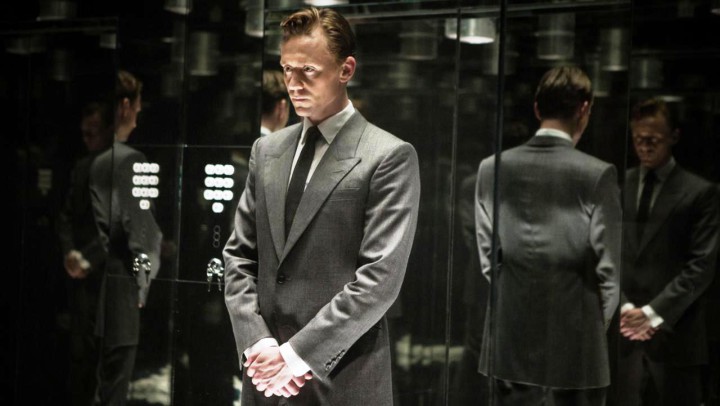
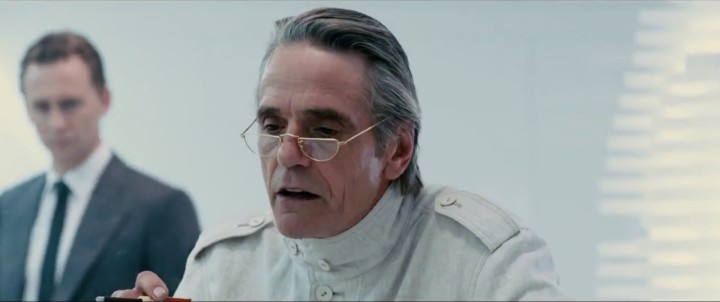
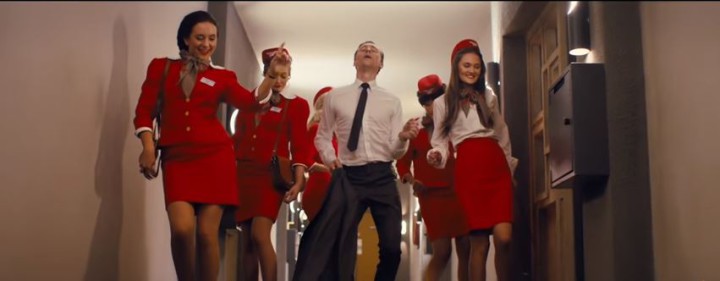
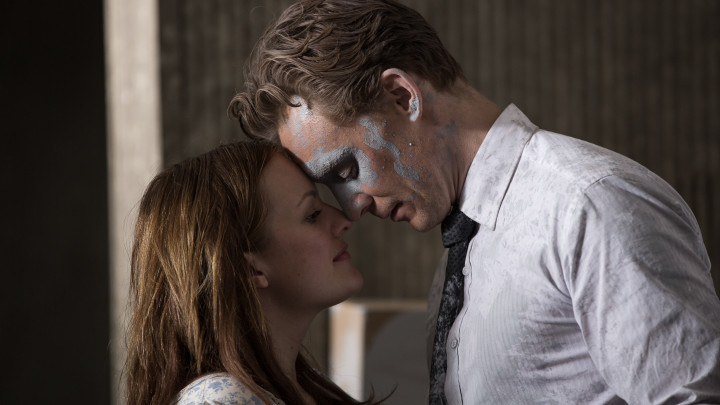
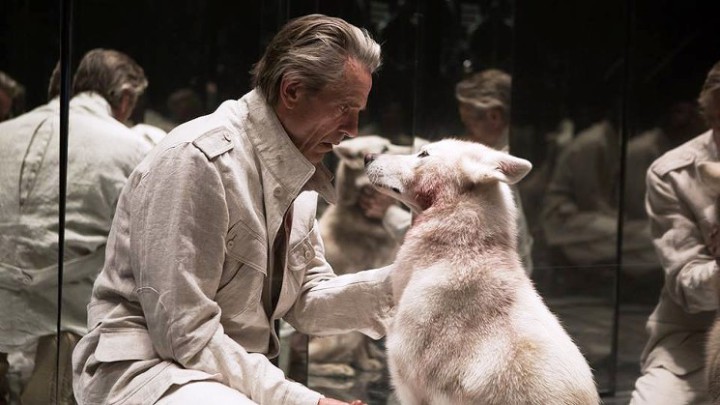
This departs come Friday.
I managed to catch it last night at its final showing at The Grail, and I’m so glad I did. I think it’s my favorite movie of the year so far! Fantastically bizarre and yet totally relatable- Delicatessen meets Brazil meets Caligula meets Mad Men with strong Kubrick influence and yet it was fresh and original. I will definitely watch this again when it comes to DVD or streaming.
It is one rich mixture.
A rixture.
The emperor wears no clothes.
I see no reason why I couldn’t make the same jumbled pretentious mess of a film. I’ve no problem with abstract art, but this movie said all it had to say in the first five minutes, and the last five minutes, and the rest was just free association (read: lazy) incoherence presented as style. Why does this film even exist?
I miss Ken right now, if anyone could convince me that the director had a vision and a point, it would probably be him.
You know he wrote this review, right?
Yeah, I’m aware of that. This particular review didn’t really break down for me why he liked it, just that he did, and then a summary. He was always game for discussing the movies more in depth in the comments section.
Ken wrote “Truthfully, there’s less story than there’s a series of events tied to the central situation”. Which is a great way of describing the film.
And other movies could be described similarly. I’ve no problem with that as a structure. I don’t need a big narrative arc to appreciate a movie. But the chosen scenes and interactions seemed so arbitrary and unimportant and barely connected. I didn’t know what it was trying to say or do by being chaotic and intentionally incomprehensible.
A reviewer for Variety wrote, ” It could take decades for critics and audiences to appreciate whatever genius lurks behind the chaos, but for the time being, it seems like little more than madness.” Ugh. talking about hedging your bets.